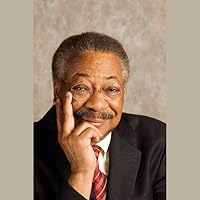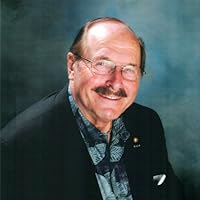Roaring 20s Quotes
Quotes tagged as "roaring-20s"
Showing 1-4 of 4

“A beautiful white silk scarf was around her neck, tucked below the fur collar. Her lips were well painted into a bright red cupid’s bow. Cute as hell I always told myself, with a tinge of regret. She had a steady girlfriend.”
― A Farewell in Paris
― A Farewell in Paris

“We are drawn to the Renaissance because of the hope for black uplift and interracial empathy that it embodied and because there is a certain element of romanticism associated with the era’s creativity, its seemingly larger than life heroes and heroines, and its most brilliantly lit terrain, Harlem, USA.”
― Encyclopedia of the Harlem Renaissance
― Encyclopedia of the Harlem Renaissance

“With World War I over, the decade prior to my birth was universally recognized as the “Roaring Twenties.” Many rejoiced, with mostly young, wealthy people indulging in wine, women and song. Promiscuous sexual behavior and the social use of alcohol became normal to the liberal thinkers who gathered in the bohemian sections of the world’s leading cities. Although political unrest still existed, most people enjoyed the peaceful years that followed the horror of World War I.
The United States, however, has always been a more structured, puritanical and religious country. From the time of the Pilgrims, spirituality and moderation has prevailed. In the United States, the concept of abstinence was advanced by the American Temperance Society, also known as the American Society for the Promotion of Temperance.
This activist group was established on February 13, 1826, in Boston, Massachusetts, and considered the concept of outlawing alcohol to be progressive. The United States Senate first proposed the Eighteenth Amendment to the Constitution, with the intent of banning the use of alcohol. After passage by the House and Senate, on December 18, 1917, the proposed amendment was submitted to the states for ratification. On January 16, 1919, the Eighteenth Amendment was ratified, with an effective date one year later on January 17, 1920. The Volstead Act, passed on October 28, 1919, specified the details for the enforcement of the Eighteenth Amendment. A total of 1,520 Federal Prohibition agents, having police powers, were assigned to enforce this unpopular law.
Many people, ignoring this new law, partied at the many renowned illegal speakeasies, many of which were run by the Mafia. This ban on alcohol proved to be contentious, difficult to enforce, and an infringement on people’s personal rights. Still, due to political pressure, it continued until March 22, 1933, when President Franklin Roosevelt signed an amendment to the Constitution, known as the Cullen-Harrison Act, which allowed for the manufacture and sale of watery 3.2% beer. It took over a decade from its inception before the Eighteenth Amendment was finally repealed on December 5, 1933, when the Twenty-First Amendment to the Constitution was adopted.”
―
The United States, however, has always been a more structured, puritanical and religious country. From the time of the Pilgrims, spirituality and moderation has prevailed. In the United States, the concept of abstinence was advanced by the American Temperance Society, also known as the American Society for the Promotion of Temperance.
This activist group was established on February 13, 1826, in Boston, Massachusetts, and considered the concept of outlawing alcohol to be progressive. The United States Senate first proposed the Eighteenth Amendment to the Constitution, with the intent of banning the use of alcohol. After passage by the House and Senate, on December 18, 1917, the proposed amendment was submitted to the states for ratification. On January 16, 1919, the Eighteenth Amendment was ratified, with an effective date one year later on January 17, 1920. The Volstead Act, passed on October 28, 1919, specified the details for the enforcement of the Eighteenth Amendment. A total of 1,520 Federal Prohibition agents, having police powers, were assigned to enforce this unpopular law.
Many people, ignoring this new law, partied at the many renowned illegal speakeasies, many of which were run by the Mafia. This ban on alcohol proved to be contentious, difficult to enforce, and an infringement on people’s personal rights. Still, due to political pressure, it continued until March 22, 1933, when President Franklin Roosevelt signed an amendment to the Constitution, known as the Cullen-Harrison Act, which allowed for the manufacture and sale of watery 3.2% beer. It took over a decade from its inception before the Eighteenth Amendment was finally repealed on December 5, 1933, when the Twenty-First Amendment to the Constitution was adopted.”
―

“I sensed the unsettling aura, the stillness giving way to silent pandemonium of a crowd that could no longer be seen—the nights of posh black-tie parties, laughter and scandal, champagne and cigarettes long since gone.”
― Lady Be Good: The Life and Times of Dorothy Hale
― Lady Be Good: The Life and Times of Dorothy Hale
All Quotes
|
My Quotes
|
Add A Quote
Browse By Tag
- Love Quotes 97.5k
- Life Quotes 76k
- Inspirational Quotes 73k
- Humor Quotes 43.5k
- Philosophy Quotes 29.5k
- Inspirational Quotes Quotes 27k
- God Quotes 26k
- Truth Quotes 23.5k
- Wisdom Quotes 23.5k
- Romance Quotes 23k
- Poetry Quotes 22k
- Death Quotes 20k
- Happiness Quotes 18.5k
- Life Lessons Quotes 18.5k
- Hope Quotes 18k
- Faith Quotes 18k
- Quotes Quotes 16.5k
- Inspiration Quotes 16.5k
- Spirituality Quotes 15k
- Religion Quotes 15k
- Motivational Quotes 15k
- Writing Quotes 15k
- Relationships Quotes 14.5k
- Life Quotes Quotes 14k
- Love Quotes Quotes 14k
- Success Quotes 13.5k
- Time Quotes 12.5k
- Motivation Quotes 12k
- Science Quotes 11.5k
- Motivational Quotes Quotes 11.5k

